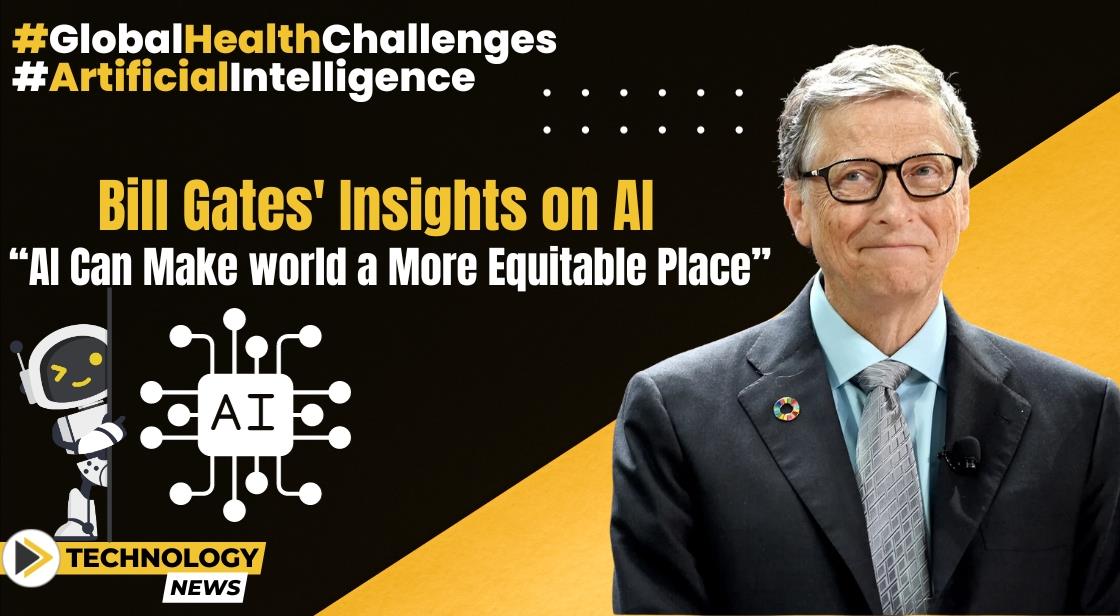Bill Gates Outlines Vision for Equitable Global Healthcare Access: AI for All

News Synopsis
Bill Gates, renowned billionaire and Microsoft Co-founder, champions the transformative potential of artificial intelligence (AI), envisioning its ability to create a more equitable world by narrowing the innovation divide between affluent and marginalized communities.
In a recent blog post titled 'The road ahead reaches a turning point in 2024,' Gates underscores the pivotal role of smart investments in AI to expedite global inclusivity, particularly in healthcare.
Tailoring AI for Equitable Impact
Drawing from lessons in global health, Gates emphasizes the need for AI products to be tailored to the diverse needs of users. This crucial customization ensures AI's effective utilization and maximizes its impact, especially in addressing prevalent health disparities across regions.
Revolutionizing Medicine: AI in Drug Discovery
AI's profound impact resonates prominently in drug discovery, significantly expediting the process by sifting through vast data sets. Gates sheds light on companies leveraging AI tools to accelerate the development of cancer drugs. Emphasizing the Gates Foundation's focus, he stresses the importance of AI tools in combatting health issues disproportionately affecting marginalized communities, such as AIDS, tuberculosis (TB), and malaria.
AI Empowering Healthcare Interventions
In the healthcare landscape, AI's potential is evident in various groundbreaking initiatives. Gates spotlights Nana Kofi Quakyi's work at the Aurum Institute in Ghana, harnessing AI to aid health workers in judiciously prescribing antibiotics without contributing to antimicrobial resistance (AMR).
Addressing High-Risk Pregnancies and HIV Risk Assessment
Bill Gates underscores AI's role in improving maternal health in India, where AI-powered tools assist health workers in managing high-risk pregnancies effectively. Additionally, in addressing HIV risk assessment, Gates discusses a South African chatbot designed to provide unbiased advice and support, enabling individuals to assess their HIV risk confidentially.
AI's Accessibility Timeline
Predicting the integration of AI into daily lives, Gates foresees substantial AI use in high-income countries like the United States within 18–24 months. Similarly, he anticipates a comparable level of AI utilization in African countries within three years, significantly reducing historical innovation lag times.
In essence, Gates remains optimistic about AI's capacity to revolutionize healthcare, promote equity, and accelerate innovation across diverse global landscapes.
You May Like









